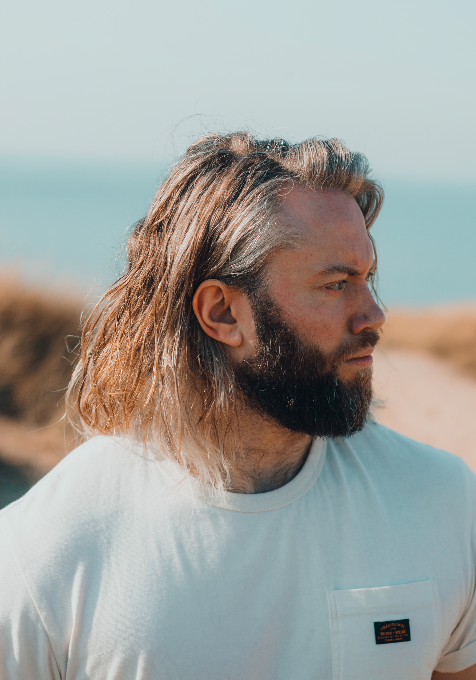It’s a sign of the times that we discuss an emerging artist’s success in terms of Spotify playlists, but Yorkshire-born and Liverpool-based composer Tom Ashbrook has already clocked an eye-watering seven million streams, and he only started releasing music two years ago. This is in part thanks to the critical placing of his tracks like his well-known ‘Klass’ on some of the biggest playlists in the neoclassical world, such as Spotify’s Atmospheric Piano and Not Quite Classical. Ashbrook chats with Headliner about making music from Liverpool rather than London, letting his introspection run wild in lockdown, his stunning Solitudes series of singles, and why he raced against time (and several other bidders) to collect a second hand Roland Juno from an elderly gentleman.
“I've been here over 10 years,” Ashbrook says of his adopted home of Liverpool. “I went to Paul McCartney's Institute (Liverpool Institute for Performing Arts) to study music and I've just been happy to stay here. It's a nice middle ground between family in Yorkshire and working and recording in London. And of course, it’s super cheap!”
Having also auditioned to study music in Salford, Manchester, the LIPA choice eventually paid off big time.
“I was lucky enough to start a Pink Floyd tour almost straight out of university! Their offices are based in Liverpool. So I did five or six years of full-on yearly touring straight away and I was replicating note for note all the Pink Floyd albums and synth solos. That definitely got me into the synthesizers — I really grew to love the Moog stuff and that world of creating, especially after six years of playing Shine On You Crazy Diamond!”
With Ashbrook’s background in learning composing, keyboards and a burgeoning interest in analogue synths, it makes sense that his head turned upon hearing the neoclassical maestro Nils Frahm for the first time, and why he was willing to miss the start of his best friend’s stag do to get his hands on a vintage Roland Juno (which, second hand, often cost around two grand).
“The first time I heard Nils Frahm, I just loved the layering of acoustic instruments with synths,” Ashbrook explains. “Plus it really started me getting into the Juno synthesizers [Frahm has hugely popularised the instrument]. And then one day I was getting ready to go to my friend’s stag do, and a Juno cropped up on Marketplace!
“I picked it up and drove up to Leeds and missed the start of the stag do. I could see five other people were going for it — it was such a good price that I thought this can't be real! It was this little old man in Leeds who'd had it in storage for 15 years. I got it home and it was in perfect working condition, which is amazing because you just can’t emulate it, and I’ve been so into the arpeggiators, the LFO and everything ever since.”
Ashbrook’s music streams are already in the millions in the tiny two-year space of releasing music. He even released his debut album Sensibus early last year, containing his highly popular piece Klass.
The pandemic has seen him strip his music back even further with his Solitudes series, which demand attention, followed by ensuing calm. Solitude III is a wonderful example of his approach, and something perhaps only the neoclassical genre can achieve — a far-reaching, stunning melody worthy of any of the world’s top singers, but in the very sparse world of piano, and the most delicate of synth pad sounds providing the comfy bedding.




